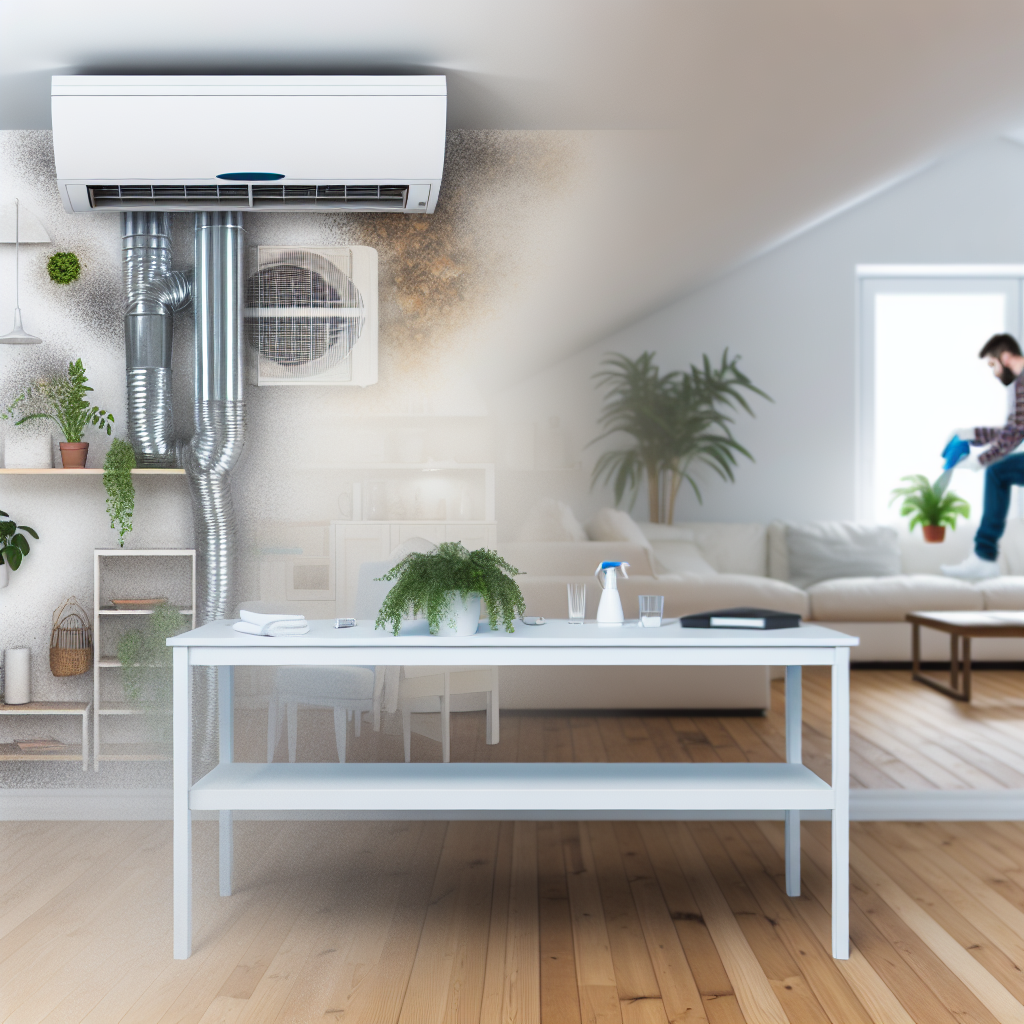Published: Oct 12, 2024

Indoor air quality is essential for the health and well-being of you and your family. Poor air quality can lead to various health issues, including allergies, respiratory problems, and even long-term health effects. Fortunately, there are several steps you can take to improve the air quality in your home and create a healthier living environment.
Regular cleaning is crucial for maintaining good indoor air quality. Dust, pet dander, and other pollutants can accumulate in your home, leading to poor air quality. Be sure to vacuum carpets and rugs frequently, dust surfaces, and change bedding regularly to reduce the build-up of allergens.
Proper ventilation is key to circulating fresh air throughout your home. Make use of exhaust fans in the kitchen and bathroom to remove airborne pollutants. Opening windows when weather permits can also help improve air circulation and prevent stale air from lingering indoors.
Your HVAC system's air filters play a significant role in trapping dust, pollen, and other particles that can affect air quality. It's essential to replace these filters regularly, typically every 1 to 3 months, depending on the filter type and usage. Clogged filters can restrict airflow and allow pollutants to circulate in your home.
Maintaining proper humidity levels in your home can help prevent mold growth and keep allergens at bay. Use a dehumidifier in damp areas, such as basements, to reduce moisture levels. Conversely, if the air is too dry, consider using a humidifier to add moisture to the air and prevent respiratory irritation.
Tobacco smoke is a significant indoor air pollutant that can pose serious health risks, even to non-smokers. If you or anyone in your household smokes, it's crucial to do so outdoors to prevent the harmful effects of secondhand smoke on indoor air quality. Consider quitting smoking altogether for the sake of your health and the air quality in your home.
Many household cleaners contain harsh chemicals that release volatile organic compounds (VOCs) into the air, contributing to indoor air pollution. Opt for natural cleaning products or make your own using ingredients like vinegar, baking soda, and essential oils. These alternatives are safer for you, your family, and the environment.
Plants not only add a touch of greenery to your home but also help purify the air by absorbing carbon dioxide and releasing oxygen. Some plants, such as spider plants, peace lilies, and aloe vera, are particularly effective at filtering out common indoor air pollutants. Place these plants strategically throughout your home to enhance air quality naturally.
Your HVAC system plays a vital role in regulating indoor air quality. Regular maintenance by a professional ensures that your system operates efficiently and effectively. HVAC technicians can clean ducts, check for leaks, and ensure that your system is circulating clean air throughout your home.
Radon is a colorless, odorless gas that can seep into your home through the ground, posing a serious health risk. Consider testing your home for radon, especially if you live in an area known for high radon levels. Radon test kits are readily available and can help you identify and mitigate any radon issues.
If you're looking to take additional steps to improve indoor air quality, consider investing in an air purifier. Air purifiers can effectively remove airborne particles, allergens, and pollutants, providing cleaner air for you and your family to breathe. Choose an air purifier with a HEPA filter for optimal air filtration.
By implementing these strategies to improve indoor air quality, you can create a healthier home environment for you and your loved ones. Taking proactive measures to reduce indoor air pollutants and maintain clean air can have a significant impact on your overall well-being.

Our expert technicians are ready to assist you 24/7!
Contact Us Today!Read our latest articles for helpful information about heating, cooling, and air quality.
Regular HVAC maintenance is essential for improving energy efficiency, extending the lifespan of your system, enhancing...
Read MoreImplement these 10 tips to enhance the air quality in your home, promoting a healthier living environment for you and y...
Read MoreRegular seasonal HVAC maintenance is essential for maximizing system efficiency, ensuring indoor air quality, preventing...
Read MoreSmart thermostats offer energy savings, convenience, learning capabilities, and integration with smart home systems, mak...
Read More